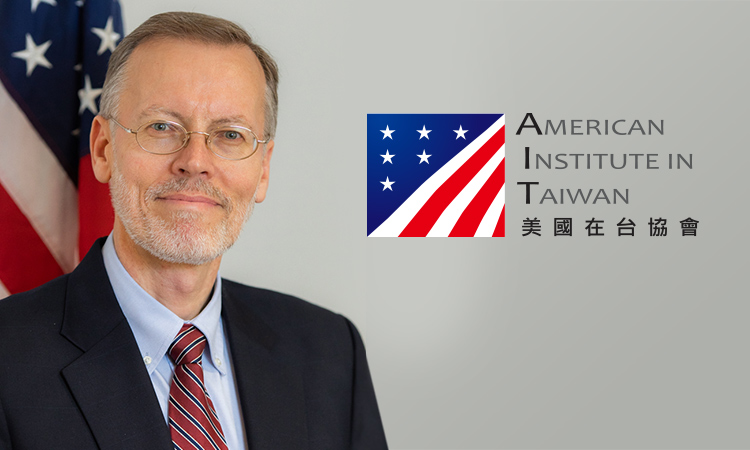OT-2051
November 21, 2020
Remarks by AIT Director W. Brent Christensen
on the Inaugural U.S.-Taiwan Economic Prosperity Partnership Dialogue
November 21, 2020
(as prepared for delivery)
Foreign Minister Wu, Minister-without-Portfolio Deng, Economic Minister Wang, Minister of Science and Technology Wu, members of the media, good morning and Zao-An!
Just a few hours ago, the United States and Taiwan concluded the inaugural meeting of the U.S.-Taiwan Economic Prosperity Partnership Dialogue. Convened under the auspices of the American Institute in Taiwan (AIT) and the Taipei Economic and Cultural Representative Office (TECRO) in the United States, the U.S.-Taiwan Economic Dialogue signifies that not only is the United States-Taiwan economic relationship strong, but it continues to deepen and grow.
Led in Washington, DC by Undersecretary of State for Economic Growth, Energy, and the Environment Keith J. Krach and in Taipei by Taiwan Minister-without-Portfolio John Deng, this historic dialogue brought together a group of high-level representatives from both sides to discuss ways to build on our work so far and increase cooperation across our broad and deep economic relationship. The MOU we signed will create the foundation for future high-level annual Economic Prosperity Partnership Dialogues, to be held alternately in Washington and Taipei.
Allow me to highlight just a few of the areas we discussed:
- On Science and Technology cooperation, I am pleased that during the Dialogue, our two sides discussed our intention to negotiate a future Science and Technology Agreement to advance joint understanding on a broad range of science and technology topics. A future agreement aims to cement U.S.-Taiwan collaboration to advance scientific knowledge, unleash technology innovation, and ensure research integrity and protection.
- On 5G and Telecommunications Security, the United States advocates for a vibrant digital economy worldwide that benefits from the promise of fifth generation (5G) networks. 5G is transformative and will touch every aspect of our lives, including critical infrastructure. We acknowledged Taiwan’s early adoption of the 5G Clean Path initiative and discussed ways to encourage the deployment of secure 5G networks around the world.
- On Supply Chains, we confirmed continued strategic cooperation across the medical industry, semiconductors, and critical technology supply chains. Taiwan is an important partner for the United States in reshaping global supply chains for the health, security, and prosperity of the Indo Pacific.
- On infrastructure cooperation, the United States welcomes Taiwan’s important contributions to infrastructure development in the Indo-Pacific region and its broader promotion of a free and open Indo-Pacific. We look forward to fostering deeper collaboration between the United States, foreign partners, and the private sector to explore joint overseas business opportunities in priority sectors with partner countries in South and Southeast Asia, the Pacific, and Latin America.
- On Global Health Security, our two sides look forward to greater cooperation on the research and development of digital technologies to deliver health care and to expand international opportunities related to medical products. And even more important during a global pandemic — our two sides discussed potential mechanisms to cooperate to ensure the free flow of medical supplies and services between our two economies.
Our cooperation is not just two sided. Whether it is on global health security, women’s economic empowerment, or scientific and technological cooperation, we know that “Taiwan Can Help, and Taiwan Is Helping.” Taiwan has demonstrated time and again that it is a reliable partner and a critical player in moving toward a more sustainable global economy. The United States is committed to making sure that Taiwan can share its valuable experience with the world and to build the capacity of partners around the world.
Building on the substantive conversations last night, we set up working groups to take action on the many issues of mutual concern. We will also take this work forward through existing platforms such as the Global Cooperation and Training Framework.
I will close by saying that, having worked with Taiwan colleagues over the last 30+ years, I am more optimistic than ever about the prospects for our relationship, which is based on shared democratic values, strong economic ties, and deep people-to-people bonds. Truly, the U.S.-Taiwan relationship is one of “Real Friends, Real Progress” [真朋友, 真進展]. I look forward the important work together in the months and years ahead.
Thank you.
















![Video Thumbnail [Recovered]-01](../wp-content/uploads/sites/269/Video-Thumbnail-Recovered-01-1-750x450.jpg)





